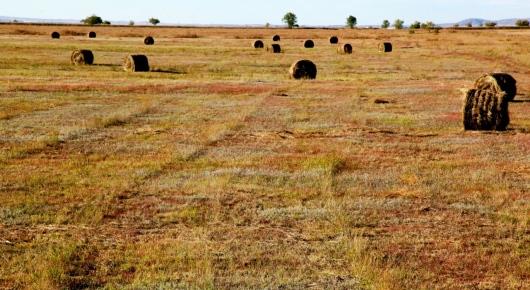Organic agriculture gets boost from FAO in Kazakhstan

To spur progress in the development of organic agriculture in Kazakhstan, FAO continues to support the Kazakh Government in establishing and piloting a rigorous traceability and certification system.
Framed by a multiannual effort to support the development of organic agriculture in the country through the establishment of a trusted organic guarantee system, FAO conducted several workshops and held meetings with national partners in July.
Organic agriculture is considered to have prospects for profitability in Kazakhstan, and it has triple benefit – for the environment, for farmers, and for public health. Because it sustains the fertility of soils and ecosystems, organic agriculture is one of the best practices for ensuring environmental sustainability. It also rewards farmers with sustained benefits through the fast sales growth of organic production worldwide. Furthermore, organic products are good for people’s health.
Kazakhstan, with extensive land areas that have seen little cultivation or that have been farmed with little or no artificial input, has unlimited potential in organic agriculture, both in the production of dairy and meat and in the cultivation of organic crops. Thus, organic production has been made one of the national priorities for the country’s development.
To make this happen, FAO discussed the structure and setup of responsibilities of the organic guarantee system with the Ministry of Agriculture of Kazakhstan, including the provisions of the Kazakh organic law, organic production standards, technical regulation of control and certification, and accreditation mechanism.
Meetings were held with traders, exporters, farmers, international organizations and the Kazakh Agro Technical University. Meetings with the university were aimed at laying the background for research, training and education.
The FAO mission was led by organic production and certification expert Gerald A. Herrmann, former president of IFOAM – Organics International.
“As a land-locked country far from markets and with relatively low yields due to natural soil and climate conditions,” Herrmann said, “it is hard for Kazakh farmers to compete under the current (conventional) agricultural system on the world markets.”
“Organic, with its fast-growing demand and higher prices, can help Kazakh farmers generate a better income,” he added. “But this will need a substantiated guarantee that the organic products are not only certified but are also reliable.”
Certain barriers do hinder Kazakh farmers from harvesting the advantages of organic agriculture right away.
For starters, the Kazakh organic guarantee system should be internationally recognized. Until that happens, the FAO expert recommends focusing on direct certification to the standards of export markets to allow access to these markets in the short term.
The country’s regulation should also be harmonized with those of member countries in the Eurasian Economic Union. Since all members of the Union are in early stages of developing their own systems, this process is expected to be smooth.
Besides exports, a strong domestic market might be created as an incentive for smaller producers and processors, ultimately benefitting consumers in Kazakhstan.
A targeted support system for farmers and for the sector as a whole is a proven way to push for a faster shift to organic agriculture. This might include direct payments during the conversion; assistance schemes for certification fees; long-term investments into research, training and education; and the promotion of the Kazakh “Organic Integrity and Traceability system.”
“Since 2015, FAO has been actively supporting the process to improve current legislation, create an effective organizational infrastructure and certification system, and develop strategic planning in organic production in Kazakhstan,” said Kairat Nazhmidenov, head of the FAO Partnership and Liaison Office in Kazakhstan.
“This year, we started helping Kazakhstan develop its integrity and traceability system,” he said, “as according to the experience of other organic-producing countries, developing such a system is becoming one of the most important elements in the process of building trust among organic market players and in avoiding fraud in organic trade. The knowledge and know-how accumulated within this project can be disseminated and used in other countries in our region.”
1 August 2018, Astana, Kazakhstan
